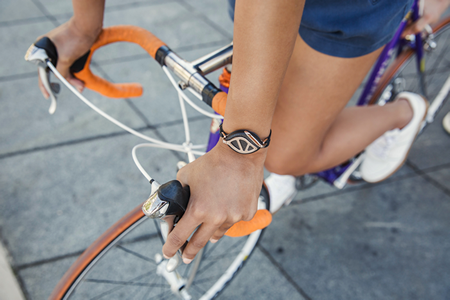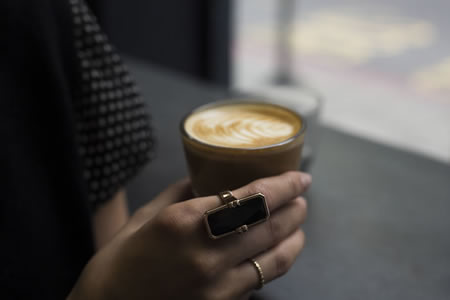The technology paradox
Technology to take you away from technology – sound a little paradoxical? Electronic Specifier’s Daisy Stapley-Bunten explains.
Fashion has made accessories out of technology, hybridising medical wearables with personal data tracking. Replacing one piece of technology with another that is supposedly less invasive. Technology has become inextricably integrated into our lives, but these technologies attempt to relieve the symptoms of tech-addiction with tech.
Aurai
At a time when we interface more with technology than with other people on a daily basis, our eyes bear the brunt of the stress. Staring at multiple screens for lengthy periods of time takes its toll and the eyes can appear tired and puffy, and feel strained. Aurai (above) is the world’s first water-propelled eye massager, designed to alleviate the symptoms caused by a digital lifestyle, with a cool compress and a warm compress.
Its ‘cool compress’ feature helps to regulate the blood circulation around the eyes and relieve the strain. The cool compress also alleviates the conditions associated with inflammation as puffy eyes, dark circles, ocular itching and watery eyes from allergies by slowing metabolic rate and reducing swelling around the eyes.
The ‘warm compress’ helps stimulate the oil glands and prevent oil clotting. This improves blood circulation which in turn helps to relax the eyes, which can aid with sleep.
While other eye massagers utilise rigid vibration, Aurai uses a water massage with water circulation and waves. The water bag design also allows for a temperature change in two minutes. The water bag is created from hypoallergenic silicon and includes a face mask that instantly moulds to any face shape.
Bellabeat
Bellabeat Leaf (below) acts as an activity and step tracker by giving you information about all of your daily activities, steps taken and calories burned. You can also add custom activities via the app. The app offers meditation sessions, sleep tracking, step counting and has a menstrual cycle tracking feature, tailoring this wearable for women.

Bellabeat Leaf alerts the user through smart notifications, such as a smart alarm, and an inactivity alert which notifies via discreet vibrations. The wearable can be worn as a bracelet, necklace or worn as a clip. The Bellabeat is technology as fashion, without compromising on functionality.
The Bellabeat Leaf Urban model is also the world’s first wearable that predicts stress. These wearables integrate into daily life, discreetly and fashionably, collecting and analysing data to relieve the stress of the connected world, and provide useful feedback to take control of your health and well-being via a simple interface.
Altruis
Bluetooth enabled, fashionable, incognito technology. Altruis (below) is a ring, a necklace or a bracelet which alerts the wearer about only important notifications, so you don’t sweat the small stuff.
The app for these wearables allows the user to customise which people, calls, messages and alerts deserve your attention via the iOS app.

Altruis allows the wearer to manage their stress by reducing their smartphone dependence so that they can extricate themselves from technology, but stay connected when it’s important. This increases productivity by minimising distractions, but notifies the wearer via customisable vibrations and haptic technology.
Altruis is wearable technology you can depend on to make sure you don’t depend on technology… got that?
The WellBe
One-hundred-and fifty percent funded on Indiegogo, the WellBe is a wearable bracelet that learns your stress triggers - when, where and who.
However this wearable doesn’t just provide information on why and how you are stressed and leave you to cope alone, but actually offers personalised stress reducing programmes such as meditations, focused breathing, guided imagination and personalised playlists. The WellBe learns your stress triggers and offers guidance to return you to a state of calm.
Designed to support your emotional well-being, the WellBe monitors your heart rate and uses a patent pending algorithm to determine your stress and calmness levels based on time, location and people you meet throughout your day.










